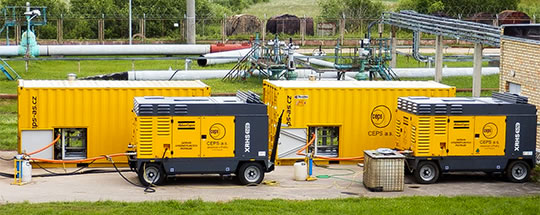Comprehensive approach to the decommissioning of oil pipelines
Seven hundred and fifty kilometres of shut down 28″ crude oil pipelines were emptied, chemically cleaned and conserved by nitrogen in Latvian and Lithuanian territory. The result of these activities was that environmental pollution risk due to oil leakage was eliminated and the pipelines are decommissioned and prepared for the next possible use in the future. Thanks to the completely removal of hydrocarbon residues a permanent safety non-explosive atmosphere was created inside of the pipelines for the assembly-welding activities without further necessary safety precautions against explosion.
In this manner more than two thousands kilometres of oil pipelines in Europe have been decommissioned, abandoned, prepared for repair works or converted from crude oil to refined oil product transportation during the last 15 years.

See the Comprehensive approach to the decommissioning of oil pipelines – conference paper (PDF, 656 kB) or the presentation (PDF, 5787 kB), that our representatives presented at the Pipeline Pigging Conference, in the 2016, in Tehran, Iran.
2 Decommissioning and conservation of crude oil pipelines for their future use
2.1 Preparation works
2.2 Pipeline wmptying
2.3 Chemical cleaning of the pipelines
2.4 Conservation of the pipeline
2.5 Benefits
2.6 Verification of the cleanness of the pipeline during the subsequent revalidation
3 Short term pipeline shut-down for multiple remedial repair works
3.1 Replacement of 32 pipes in 96 hours
3.2 Repair of many defects during short time shut-down
4 The conclusion
